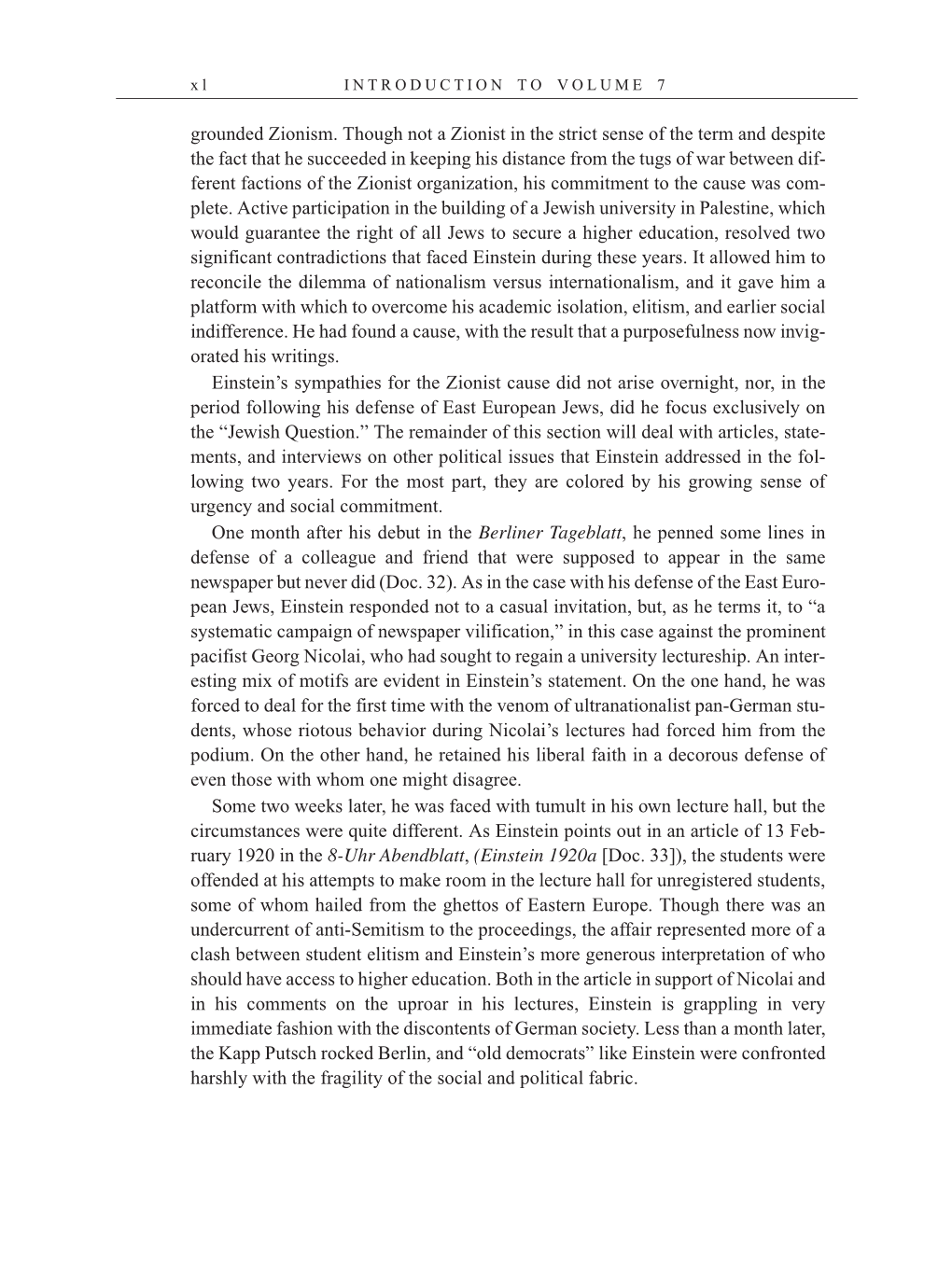x l I N T R O D U C T I O N T O V O L U M E 7
grounded Zionism. Though not a Zionist in the strict sense of the term and despite
the fact that he succeeded in keeping his distance from the tugs of war between dif-
ferent factions of the Zionist organization, his commitment to the cause was com-
plete. Active participation in the building of a Jewish university in Palestine, which
would guarantee the right of all Jews to secure a higher education, resolved two
significant contradictions that faced Einstein during these years. It allowed him to
reconcile the dilemma of nationalism versus internationalism, and it gave him a
platform with which to overcome his academic isolation, elitism, and earlier social
indifference. He had found a cause, with the result that a purposefulness now invig-
orated his writings.
Einstein’s sympathies for the Zionist cause did not arise overnight, nor, in the
period following his defense of East European Jews, did he focus exclusively on
the “Jewish Question.” The remainder of this section will deal with articles, state-
ments, and interviews on other political issues that Einstein addressed in the fol-
lowing two years. For the most part, they are colored by his growing sense of
urgency and social commitment.
One month after his debut in the Berliner Tageblatt, he penned some lines in
defense of a colleague and friend that were supposed to appear in the same
newspaper but never did (Doc. 32). As in the case with his defense of the East Euro-
pean Jews, Einstein responded not to a casual invitation, but, as he terms it, to “a
systematic campaign of newspaper vilification,” in this case against the prominent
pacifist Georg Nicolai, who had sought to regain a university lectureship. An inter-
esting mix of motifs are evident in Einstein’s statement. On the one hand, he was
forced to deal for the first time with the venom of ultranationalist pan-German stu-
dents, whose riotous behavior during Nicolai’s lectures had forced him from the
podium. On the other hand, he retained his liberal faith in a decorous defense of
even those with whom one might disagree.
Some two weeks later, he was faced with tumult in his own lecture hall, but the
circumstances were quite different. As Einstein points out in an article of 13 Feb-
ruary 1920 in the 8-Uhr Abendblatt, (Einstein 1920a [Doc. 33]), the students were
offended at his attempts to make room in the lecture hall for unregistered students,
some of whom hailed from the ghettos of Eastern Europe. Though there was an
undercurrent of anti-Semitism to the proceedings, the affair represented more of a
clash between student elitism and Einstein’s more generous interpretation of who
should have access to higher education. Both in the article in support of Nicolai and
in his comments on the uproar in his lectures, Einstein is grappling in very
immediate fashion with the discontents of German society. Less than a month later,
the Kapp Putsch rocked Berlin, and “old democrats” like Einstein were confronted
harshly with the fragility of the social and political fabric.
